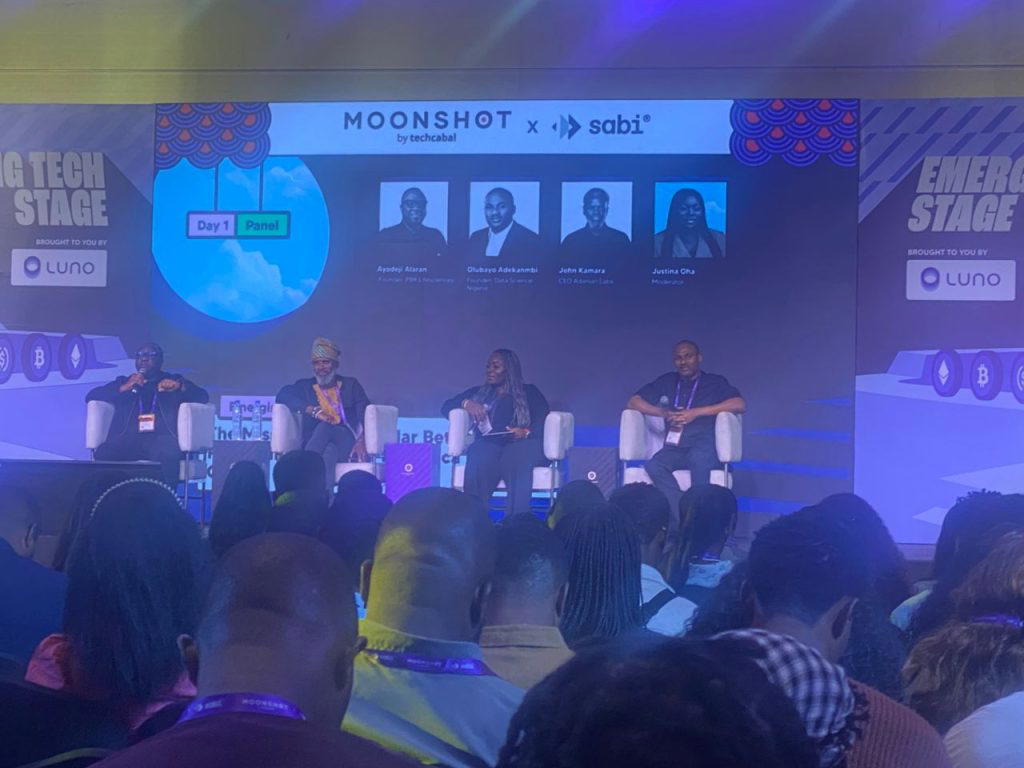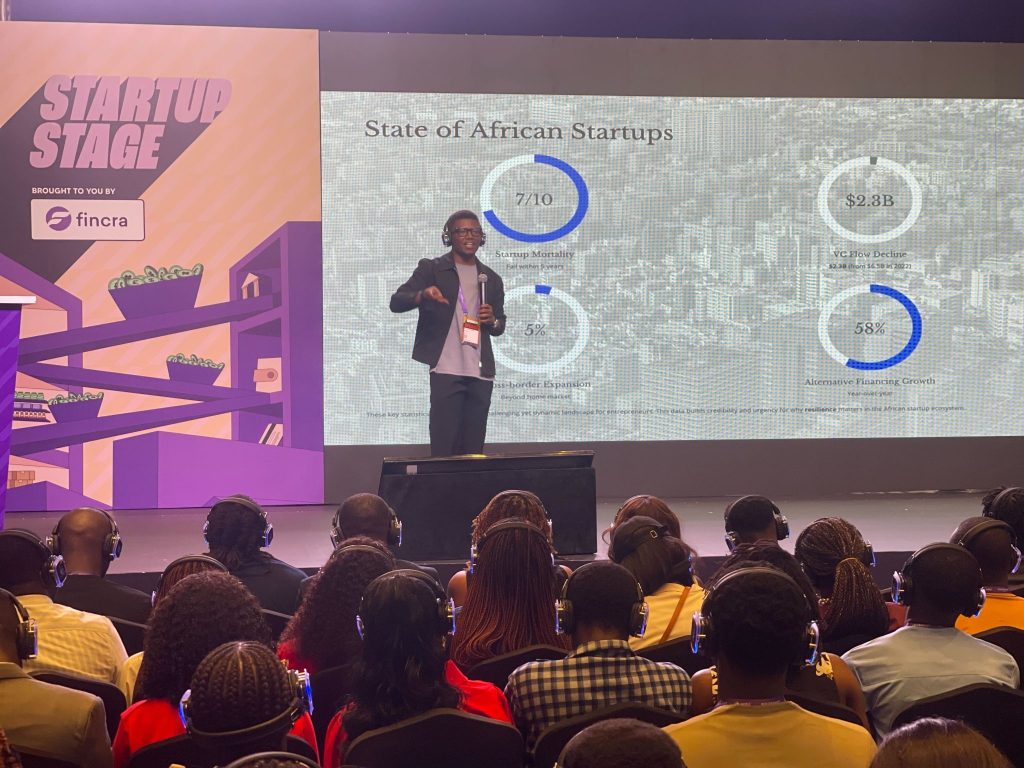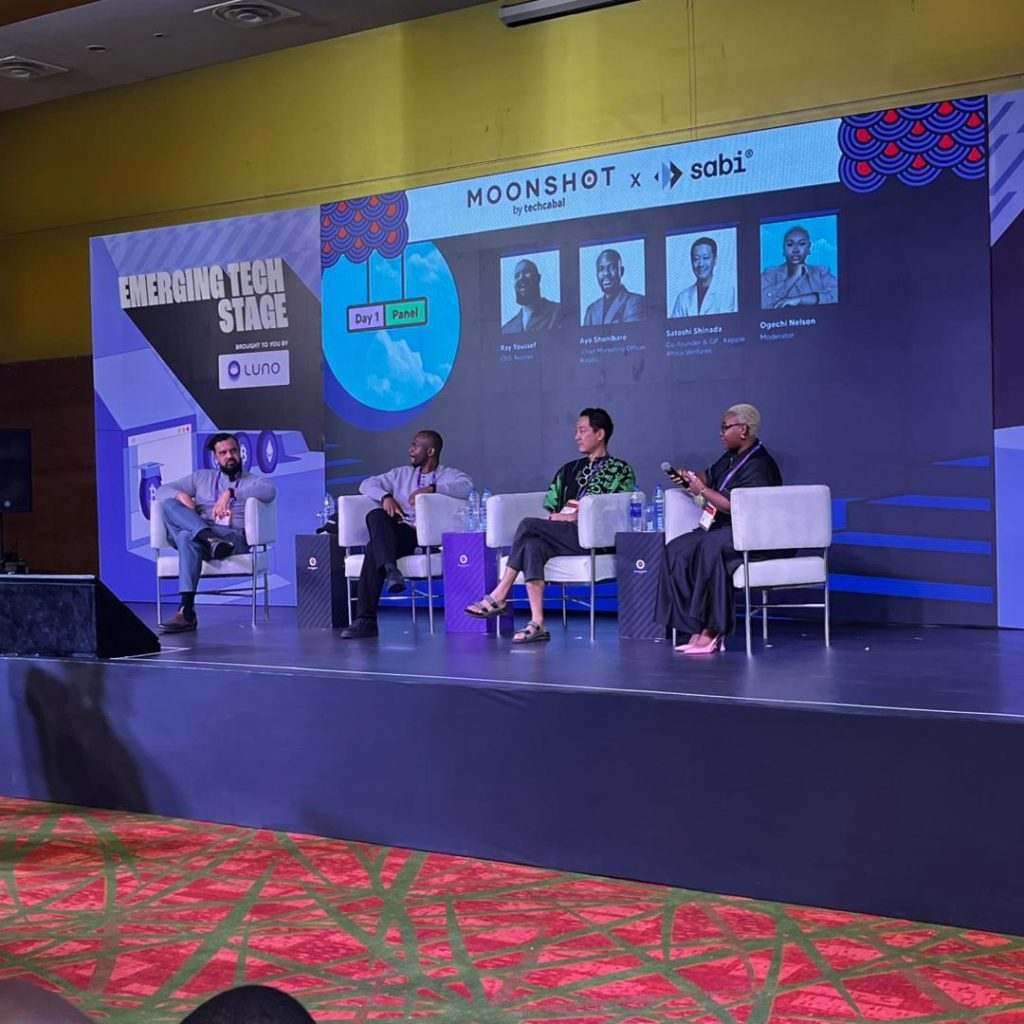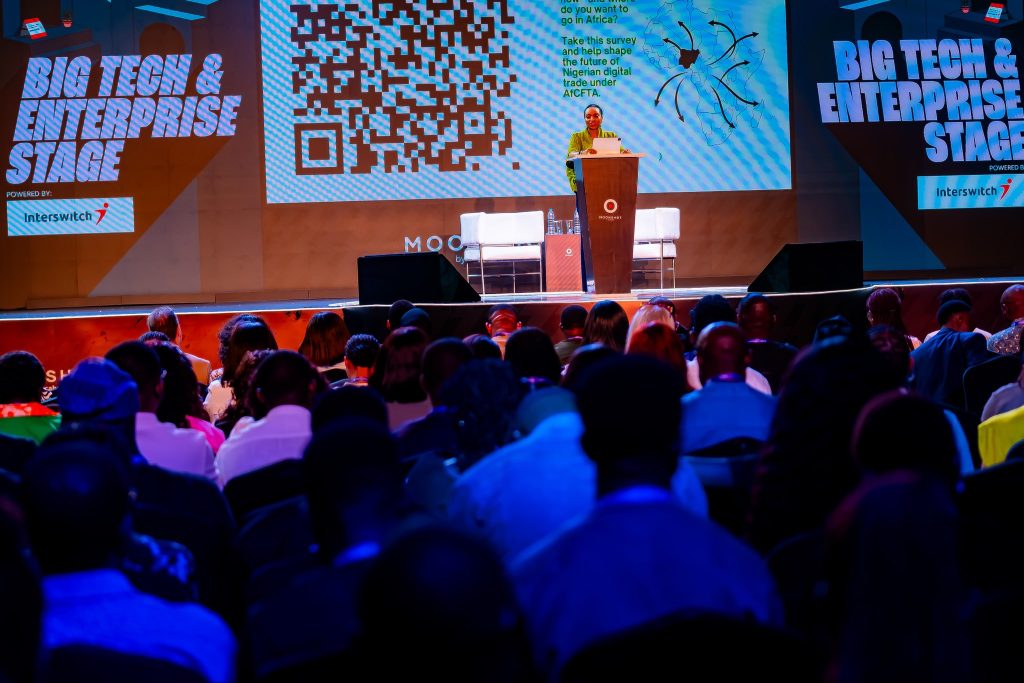Nigeria’s Minister of Industry, Trade and Investment, Jumoke Oduwole, says the federal government is partnering with key African partners to expand market access for Nigerian startups and digital service providers, as part of efforts to strengthen the continent’s innovation ecosystem.
Speaking on Day 1 of TechCabal’s Moonshot 2025 conference in Lagos, Oduwole urged Africa’s tech ecosystem to trust and collaborate with government in building a business and regulatory environment that supports innovation across borders.

“It is not very often that tech ecosystem invites govt in, or trust govt, I will urge you to be open, trust the process, communicate with us, we are trying to support. We are engaging with key African partners to facilitate market access for our startups and digital service providers,” she said.
Partnering for Market Access and Growth
Oduwole praised the country’s techpreneurs for growing the tech ecosystem organically, saying it was time to consolidate those gains with policies and partnerships that make it easier to do business across Africa and beyond
“The ecosystem has done so well not just in Nigeria but across the continent,” she said. “We will set up market access and regulatory frameworks that enable businesses to scale; not just across Africa but globally.”
She also advised startups to be strategic about expansion, identifying where their products can grow sustainably.
“Be strategic. Identify where your competitive advantage is. Which African market makes sense for your product? Stay compliant at home before going global; credibility at home ensures trust abroad.”
From Data to Discovery: Powering Africa’s Next Wave of Innovation
The opening day of Moonshot 2025 drew a mix of founders, investors, and policymakers united by one question: how can Africa move from potential to performance?
For Dr. Olubayo Adekanmbi, Founder of Data Science Nigeria, the answer lies in fixing the continent’s research culture.

“We need to determine what research truly is,” he said. “Some people spend years applying mathematics and rigorous research methods to converge knowledge. We must get out of this copy-and-paste culture if we want to lead in innovation.”
Similarly, John Kamara, Founder and Global CEO of Adanian Labs, urged startups to treat data as infrastructure.
“You can invent on innovation or innovate on invention,” he said. “But data is an infrastructure; you must understand what you want to invent with it.”
Beyond the Hustle: Building Systems that Scale
For startups battling Africa’s fragmented markets, grit alone is no longer enough. Olumide Okubadejo, Head of Product at Sabi, captured this reality during his session.

“At the beginning, you have to have the hustle system. The hustle by, you know, there’s no start time. There’s no end time. Let’s work in the office all night,” Okubadejo said. “After that, you need to start thinking about governance structures. You need to start thinking about different kinds of structures that allow you to go beyond scrappy.”
Okubadejo shared how Sabi evolved from a scrappy B2B marketplace into a digital infrastructure company serving multiple African countries.
The transition, he said, was fueled by a deeper realization: infrastructure problems can be turned into infrastructure opportunities.
“When you see fragmentation in a market, understand there’s an infrastructure play there,” he said, urging founders to think beyond hustle and build adaptable, resilient systems.
Stablecoins and the Future of Cross-Border Trade
As conversations shifted to fintech, Ray Youssef, CEO of Noones, spotlighted the transformative potential of stablecoins: digital currencies pegged to traditional fiat.

“We’ve created our own financial system in Africa; now, what’s left is the monetary system and that’s still under Western control,” Youssef said.
He argued that stablecoins could unlock faster, cheaper cross-border transactions, especially for small businesses in the Global South.
In 2024, Africa’s stablecoin transaction volume hit $54 billion, driven by Nigeria, Ghana, and Kenya: though most of that activity was speculative rather than trade-driven.
Investor Satoshi Shinada, Managing Partner at Verod-Kepple Africa Ventures, said the next phase lies in integrating stablecoins into payment systems.
“The best way to give credibility to stablecoins is to institutionalize them — make them part of the everyday payment ecosystem,” he said.
Still, regulatory uncertainty remains a hurdle. “Regulation has never kept anyone safe,” Youssef. “FTX was regulated. Binance is regulated. All regulation does is make us poor, because it keeps the money from moving around. Poverty creates scammers, and then we use the scams to justify more regulation. The cycle just continues.”
Building Momentum
Now in its third edition, Moonshot 2025 runs under the theme “Building Momentum,” drawing together the people shaping Africa’s digital future: from startup founders and investors to policymakers and corporate leaders.
Akeem Lawal, Head of Payment Processing and Switching at Interswitch Purepay, stressed that innovation thrives on infrastructure.
“When you build infrastructure, you create a community of partnerships,” he said, noting that Africa must unlock its $1.1 trillion in domestic capital to support digital transformation.
Earlier during the day, Tomiwa Aladekomo, CEO of Big Cabal Media, set the tone with what Moonshot represents.
“With Moonshot, we create shared momentum that keeps the ecosystem moving forward. We push together because together we can build.”
The post Moonshot 2025: We’re building African partnerships to expand markets for Nigerian startups — Minister appeared first on Vanguard News.

